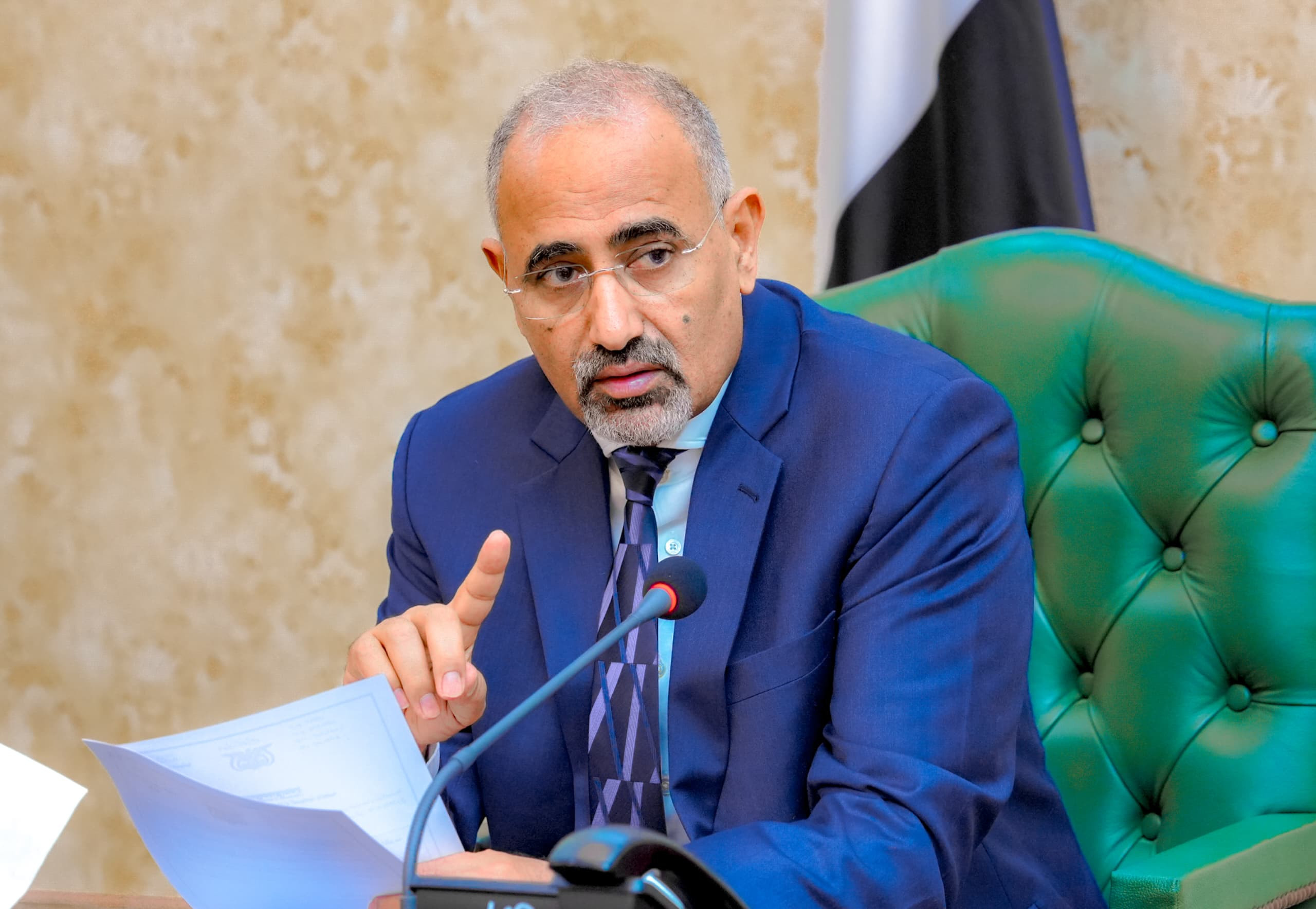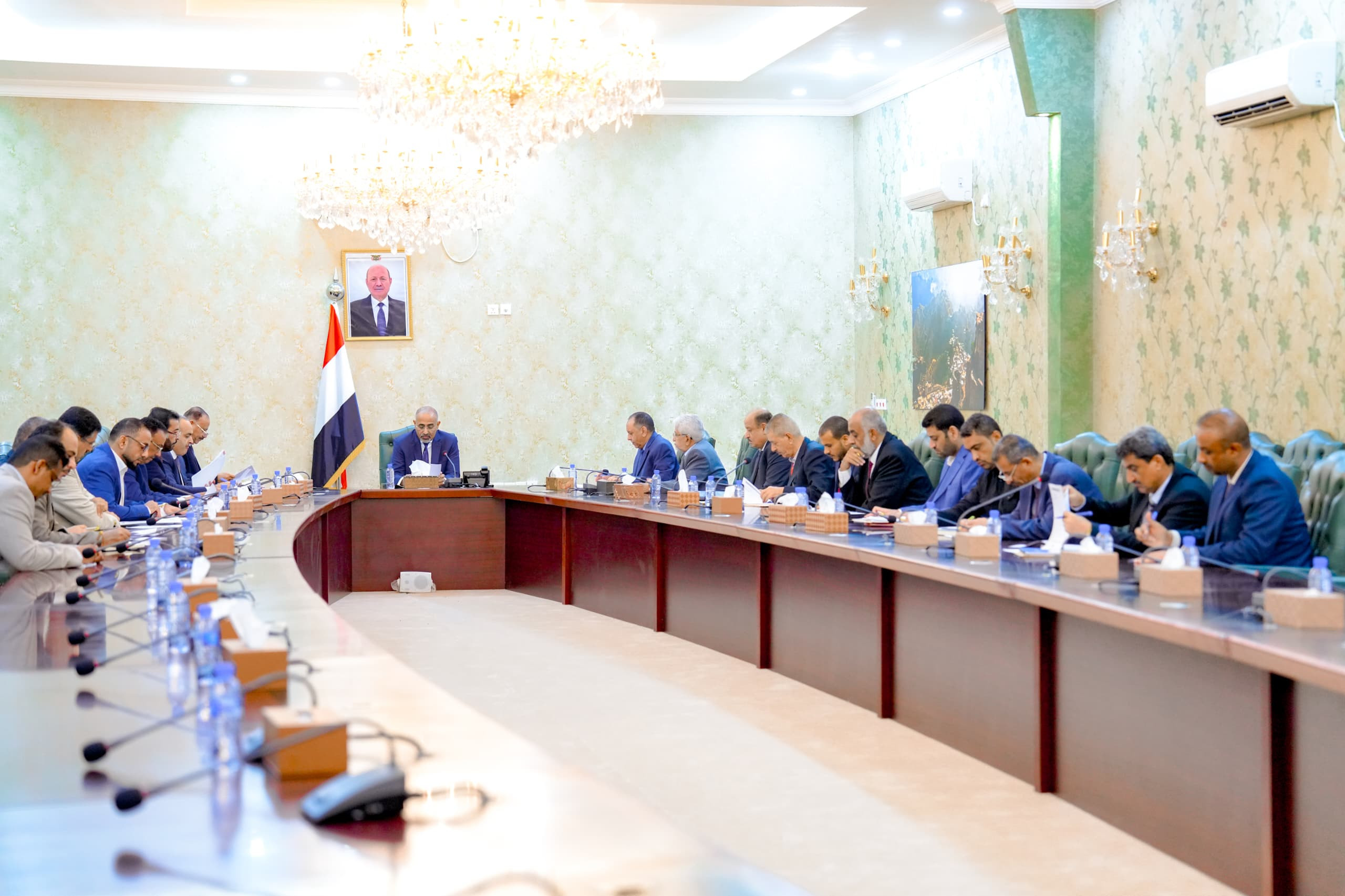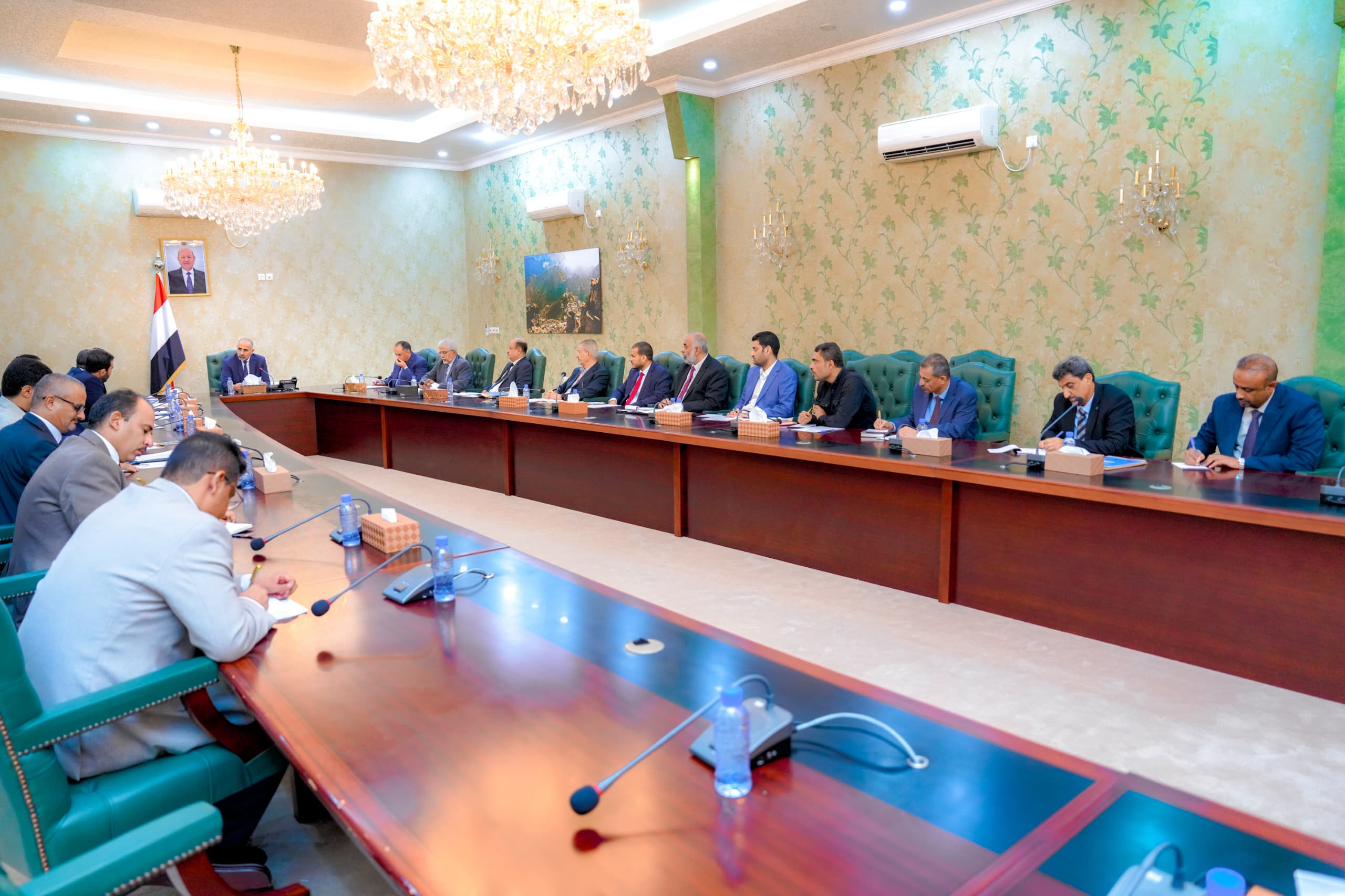Political Declaration Statement Issued by the Southern Transitional Council
Political Declaration Statement Issued by the Southern Transitional CouncilThe Southern Transitional...
President Aidarous Qassem Al-Zubaidi, President of the Southern Transitional Council (STC), Vice Chairman of the Presidential Leadership Council (PLC), and Chairman of the Supreme Committee for Sovereign and Local Resources (SCSLR), presided over the committee's seventh regular meeting today, Monday, in the capital, Aden.
At the beginning, the committee reviewed a joint report submitted by the Central Bank and the Ministry of Industry and Trade on exchange rate stability, efforts to maintain balance, measures to lower prices of essential goods and boost food security, as well as ongoing control actions by relevant government bodies to ensure market stability.
The committee also received a detailed briefing from the Deputy Chairman of the National Committee for Regulating and Financing Imports on recent progress in processing requests for foreign currency coverage of commodity imports in accordance with the executive mechanism communicated to banks and exchange firms, 91 applications were submitted last week, with a total value equivalent to $39,686,578. Fifteen banks and three exchange firms were involved in submitting applications.
In this regard, the supreme committee commended the level of engagement from banks and exchange firms in financing the import list and urged remaining institutions to contribute actively in such orientation.
Subsequently, the committee reviewed a report from the Ministry of Oil and Minerals on efforts to secure the required funding to operate the Aden Refinery, which would enhance production capacity and meet local market demand for petroleum products.
The committee highlighted the importance of continuing coordination with the Central Bank and relevant bodies to swiftly resolve technical and administrative hurdles in securing refinery financing as a key pillar in strengthening the national economy and alleviating citizen burdens.
Likewise, the committee listened to a detailed report from the Ministry of Oil regarding the implementation of earlier directives for joint coordination among the Ministries of Minerals, Transport, and Electricity, as well as the Economic Corporation, to renew the crude oil transport contract for the capital’s power stations, achievements over the past period, and the ongoing efforts that are still being followed up to complete this vital matter that is directly related to stabilizing electricity services.
The meeting also focused on the Central Bank’s progress in promptly updating government account statements held at commercial banks and exchange firms—a step toward enforcing necessary executive measures to enhance fund movement oversight and ensure revenues are deposited into official accounts within the framework of efforts to control revenue streams and strengthen the role of the Central Bank.
In the telecom sector, the committee discussed the Ministry of Communications and Information Technology (ICT) report on telecom conditions and the measures being taken to improve the sector's infrastructure and address imbalances and shortcomings that have accumulated over past years.
Furthermore, the meeting shed light on the issue of government tax collection at commercial banks. The supreme committee emphasized strict oversight of this process and instructed the head of the Tax Authority to submit memos to the Prime Minister that should propose either appointing bank-based tax representatives at commercial banks or requiring full tax clearance before processing any expenditures by government bodies until the due taxes are fully paid. This will ensure full remittance of revenues to the government, preventing revenue loss and curbing tax evasion.
The Deputy Finance Minister further presented a comprehensive report on government revenues since the PLC’s formation, including central revenue streams of various types and the level of their transfer from the governorates to the public account at the Central Bank, and proposals to improve collection mechanisms to ensure that they reach the official and proper channels.
At the end of its meeting, the supreme committee reviewed a series of regulatory and technical procedures related to its work and took the appropriate decisions accordingly.


